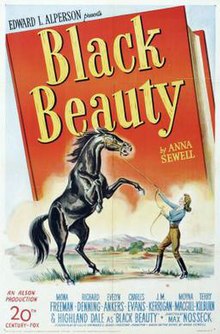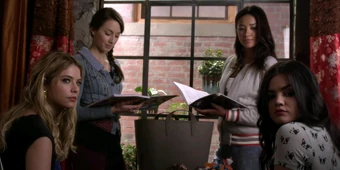I have a new phone to get pictures off of, and, as I waited until I had done all of the writing for this post to add my own pictures, I could only see about a third of the article on the phone. So I added my pictures of my own book here at the top of the page.
This edition I actually found in my attic in a box of old books left behind by one of the previous inhabitants (it was an apartment house for many years). It was published by the World Publishing Company (Cleveland and New York) in 1946. The inscription reads "To 'Jimmy' from Gordon Garland. 'Happy Birthday.'"
I had finished all but nine pages of this by Christmas Eve when I had to go into the hospital for a couple of days. While I finished it once I came home everyone was on Christmas vacation and I set up in the midst of them in the living room so it was not an opportune time for writing. As I noted in the monthly report I am going to push onward with the list, though the likelihood of my living long enough to finish it seems even more improbable (now) than it did before. My condition is at least treatable, so perhaps I can make it another twenty or thirty years, barring nuclear war or other unforeseen accidents of course.
As I noted in the December update, Black Beauty is the first of these classic children's books that I've had to read that is mostly written at the actual intellectual level of a child, though it was still famous enough when I was young (I don't know about now) that I am glad to have finally read it. The IWE had this to say about our author: "Like other gentlewomen of her time she was a reformer and Black Beauty is sheer propaganda pro humane treatment of animals and, wherever possible, anti dat ole debbil alcohol. Since Miss Sewell was a spiritual cousin german to school teachers and children's librarians everywhere, her book necessarily became recommended reading and a standard children's classic; but surprisingly enough, it really is a classic and now with the horse-and-buggy era long past it is more educational than ever." So we do get a taste of some of the surprisingly bitter male chauvinism and condescension towards women of the postwar era. On the other hand, there seems to have been some culturally influential pushback against humorless scolds, who have roared back with a vengeance in our time, during that one, and I admit to being a little envious of that. Anna Sewell would be in her element today. Even though environmentalism and the rights of refugees and marginalized people were not part of her consciousness the way they are for people today the enemies of these things are pretty much the same people who were abusing horses and drinking too much in the 1800s, so you can see how the transition to the more topical subjects for outrage would not be that difficult to make.
There is a quote on page 117 that reveals a mindset that is a characteristic of our time and that has always bothered me. "Only ignorance! only ignorance! how can you talk about only ignorance? Don't you know that it is the worst thing in the world, next to wickedness?--and which does the most mischief heaven only knows. If people can say, 'Oh! I did not know, I did not mean any harm,' they think it is all right." I hate the way people use the word "ignorant" to describe others, when it should primarily be used in reference to oneself. Yes, sometimes it applies but very often it is used as an easy, but brutal, putdown where the person uttering the word is scarcely less of a moron then the person they are talking about. Its only intent is to silence someone. It is almost never used in good faith or with serious intentions to enlighten, but to stigmatize.
I'm coming off as being negative towards this book, and I did find all the righteous moralizing somewhat tiresome, but there were aspects of it that I did like. The conceit of a horse telling his own autobiography I do like, especially as the life trajectory of a 19th century horse was one of those things that had never occurred to me, that it would change owners multiple times, that the status of those owners would generally decline as it got older and less attractive, etc. It also gave a different perspective on the world of Victorian England, a period from which I have read many books, but never one quite like this one, so that is something. As far as animal biographies go, I have not read too many, but my favorite of the genre thus far is Bambi, which I think is an excellent little book even for a pretty serious adult. But it would not hurt more young people at least to read this, I don't think.
The Bourgeois Surrender Challenge
I'm going to introduce some tweaks in the next Challenge. While my current formula worked pretty well for a while, it is now giving me too many books that no one has read in a hundred years, and is repeating some of these over multiple competitions, so I have to try to liven it up.
1. Nora Roberts--Come, Sundown...……………………………………...2,640
2. Michael Morpurgo--War Horse……………………………………………..898
3. Jaimy Gordon--Lord of Misrule...………………………………………...97
4. Arthur Conan Doyle--Return of Sherlock Holmes...……………………...60
5. D. H. Lawrence--The Rainbow...………………………………………….54
6. Stanley Gordon West--Amos: To Ride a Dead Horse...…………………..32
7. Ralph Henry Barbour--Follow the Ball...…………………………………..0
8. Irving Bacheller--The Turning of Griggsby………………………………...0
9. Reuben Okorie--Shifting Sands...…………………………………………..0
10. Louis Boudin--The Socialist Empire: The Incas of Peru...……………….0
11. Sir Walter Besant--London in the Time of the Stuarts...…………………..0
12. Anonymous--London and its Environs...………………………………….0
13. The XYZs of Socialism (ed. Reed)…………………………………………0
14. Pablo Picasso, et al--Chevaux de Minuit...………………………………...0
15. Jackson Gregory--Lonely Trail...…………………………………………..0
16. Robert W. Gordon--Taming the Past...……………………………………0
1st Round
I feel like I should have a preliminary round just for all the 0-scorers, but as there are so many in this game and I am going to be fiddling with the format going forward, I will just do this one as a straight tournament. At the same time the extremely useful state library catalog which I have used throughout these tournaments is currently inaccessible, which further messes everything up as I play these games.
#16 Gordon over #1 Roberts
#15 Gregory over #2 Morpurgo
#3 Gordon over #14 Picasso
#4 Doyle over #13 Socialism
#5 Lawrence over #12 Anonymous
#6 West over #11 Besant
#7 Barbour over #10 Boudin
This the 3rd time recently that this particular Boudin book has qualified for the tournament. It seems unlikely that this would happen randomly.
#8 Bacheller over #9 Okorie
Round of 8
#3 J. Gordon over #16 R. Gordon
#4 Doyle over #15 Gregory
#5 Lawrence over #8 Bacheller
#6 West over #7 Barbour
Final 4
#6 West over #3 J. Gordon
A close game. Similar enough books that the choice is kind of random.
#4 Doyle over #5 Lawrence
This one was close too. Two IWE authors, both pretty long books. I have read The Rainbow before.
Championship
#6 West over #4 Doyle
Because it is much shorter.
Anna Sewell's house in Great Yarmouth, England.









